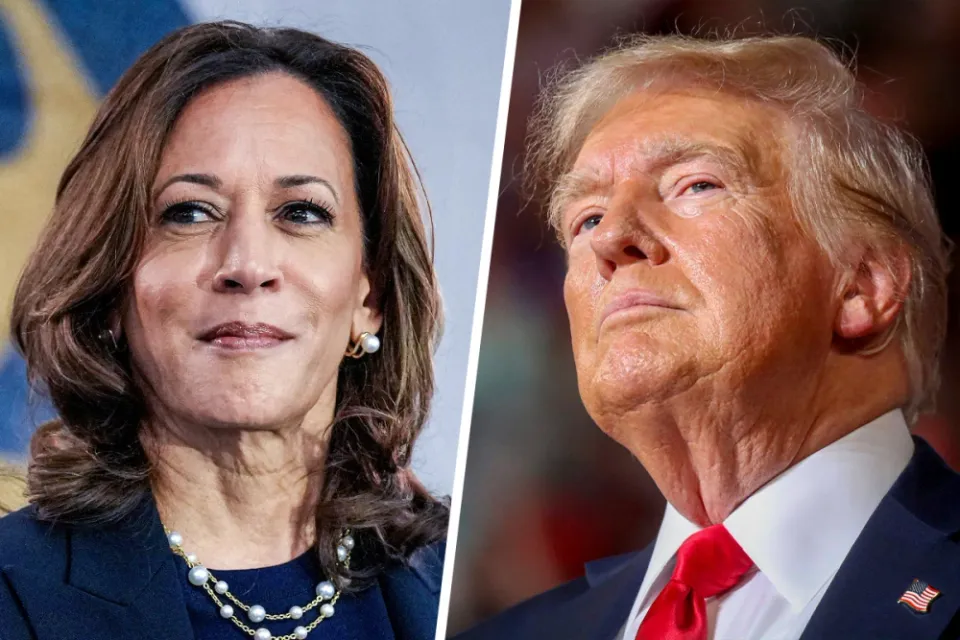Anticipation Grows as the U.S. Heads Toward Pivotal 2024 Presidential Election

As the United States approaches its 2024 presidential election, the nation—and the world—watches with intense anticipation. Set to be held on November 5, 2024, this election is expected to play a crucial role in shaping not just the future of America but also its global standing. The stakes are high, and the contest appears poised to be a defining moment in U.S. history.
Key Contenders and Their Platforms
The two main contenders in the election are expected to be the incumbent president, Joe Biden of the Democratic Party, and the former president, Donald Trump, representing the Republican Party. Both candidates represent starkly different visions for the future of the United States, and their campaigns have drawn deep lines of division across the country.
Joe Biden, who will be seeking re-election, has emphasized themes of unity, economic recovery, and the protection of democratic institutions. His administration's achievements, including efforts to combat climate change, the reduction of inflation, and infrastructure improvements, are key talking points. However, his age has been a significant topic of discussion, with some questioning his capacity to serve a second term.
Donald Trump, on the other hand, remains a highly polarizing figure. Running on a populist platform, his campaign has focused on promises to “Make America Great Again” by revisiting his policies on immigration, deregulation, and tax cuts. Trump continues to cast doubt on the 2020 election results, and his legal challenges and indictments have only heightened the drama surrounding his campaign. Despite these issues, he maintains a fervent base of supporters, which could make the election one of the most contentious in U.S. history.
Key Issues Driving the Election
Several pressing issues are expected to dominate the election cycle. These include:
- Economic Challenges: While the U.S. economy has rebounded since the COVID-19 pandemic, inflation and wage stagnation remain concerns for many voters. Both candidates have presented differing views on how to address these challenges, with Biden focusing on government investments in infrastructure and social programs, and Trump advocating for tax cuts and deregulation as solutions.
- Healthcare and Social Security: Healthcare remains a critical issue, with debates surrounding the future of Obamacare, rising healthcare costs, and the solvency of Social Security and Medicare. Biden has promised to expand healthcare access, while Trump has proposed market-driven reforms.
- Foreign Policy: With rising geopolitical tensions, particularly with China and Russia, U.S. foreign policy is a central issue. Biden has pursued a more multilateral approach, strengthening alliances, particularly with NATO and Asian allies. Trump, in contrast, has criticized Biden’s approach, emphasizing an "America First" strategy and advocating for less U.S. involvement in global affairs.
- Climate Change and Energy: Climate change policy remains a key dividing issue. Biden has made significant strides in promoting renewable energy and reducing carbon emissions, including rejoining the Paris Agreement. Trump, however, has criticized these policies as detrimental to the U.S. economy, particularly in energy-rich states.
- Immigration: Immigration is a perennial issue in U.S. elections. Biden has pursued a more humanitarian approach to immigration reform, while Trump has maintained his hardline stance, advocating for stricter border controls and a renewed emphasis on the construction of a border wall.
Global Impact and Asia’s Perspective
The outcome of the U.S. presidential election will undoubtedly have far-reaching consequences, particularly for the Asia-Pacific region. Under Biden, U.S.-China relations have been marked by strategic competition but also cooperation on certain issues, such as climate change. Trump’s potential return to office could see a more confrontational approach toward China, with ramifications for global trade and security alliances.
For many Asian nations, the election is being closely watched, as it will influence U.S. involvement in regional security, especially in hotspots like the South China Sea and Taiwan. Trade relations, too, hang in the balance, with Southeast Asian nations keen to understand how U.S. policy will evolve on issues like tariffs, market access, and the Indo-Pacific economic framework.
Voter Sentiment and the Road Ahead
As the election draws nearer, voter sentiment remains divided. Polls suggest that both candidates have a loyal base, but independents and undecided voters will likely decide the election’s outcome. The country remains polarized, with issues of race, inequality, and democracy itself continuing to drive much of the debate.
The 2024 U.S. presidential election promises to be a watershed moment, not just for America but for the world. As the nation grapples with domestic challenges and its role in a rapidly changing global landscape, all eyes will be on the voters who will ultimately decide the next occupant of the White House. For Asia, the election's outcome will shape future relations, trade partnerships, and the balance of power in the region.
